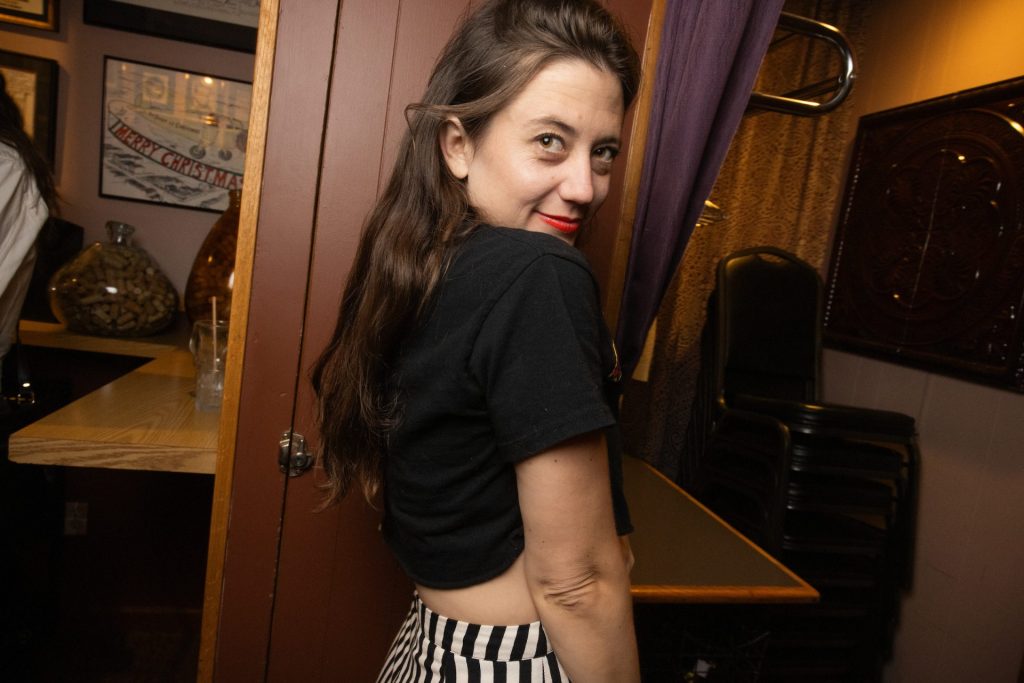
Hilary Fitzgerald Campbell is not a foodie, but she’s not a bad person.
That’s what she once told her boyfriend, a wine seller and gourmand, after yet another food-related argument put her on the defensive. After all, why can’t a full-grown woman eat Goldfish for dinner? Who does it harm if she puts ice in her white wine? And why is it so offensive that she doesn’t want to try the steak, no, really, no, not even a bite, no, seriously, really, thank you but no?
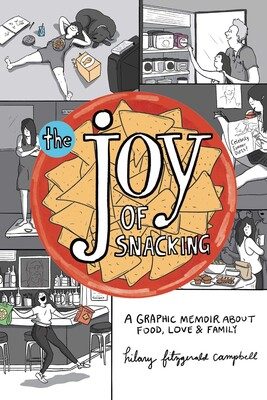
Campbell’s new graphic memoir, The Joy of Snacking, doesn’t so much answer these questions as use them as a jumping-off point. The book is a freewheeling, expansive exploration of her relationship to food through the decades, and the role eating plays in her dynamics with family, friends, lovers, and, most importantly, herself. It’s not an easy topic, and there’s plenty of difficult material, but Campbell tackles it in her signature style: with a balance of unflinching honesty and humor (at any given moment, a reader is never more than a few panels away from either an epiphany or a punchline), and with artwork so exuberant that it vibrates off the page.
The Joy of Snacking is regularly punctuated with recipes (e.g., Bathroom Bagels; Peeled Apple and Peanut Butter), which encapsulate Campbell’s ability to be at once tongue-in-cheek and entirely sincere. The recipes also serve as a convenient structuring device in Campbell’s book, and, because I’ve never met a good idea I didn’t steal, I suggested we use them in the same way for this interview. She graciously obliged, so I made my way over to her Greenpoint apartment to peck at snacks and pepper her with questions.
SW: What’s The Joy of Snacking about?
HFC: It’s about my relationship with food and my body since I was very young, and how it’s come out in family dynamics, friend dynamics, and romantic dynamics. And it’s also about quiet eating disorders and how they go undetected, sometimes forever. For me, it became a recovery story.
SW: How much of what you just said was on your radar when you first pitched it? HFC: None of it. My pitch was like, “I’ve always loved snacks. I’m just a snack girl! It’s going to be a funny book with silly stories related to food. It was going to be so much lighter than [my last book,] Murder Book, and shorter.
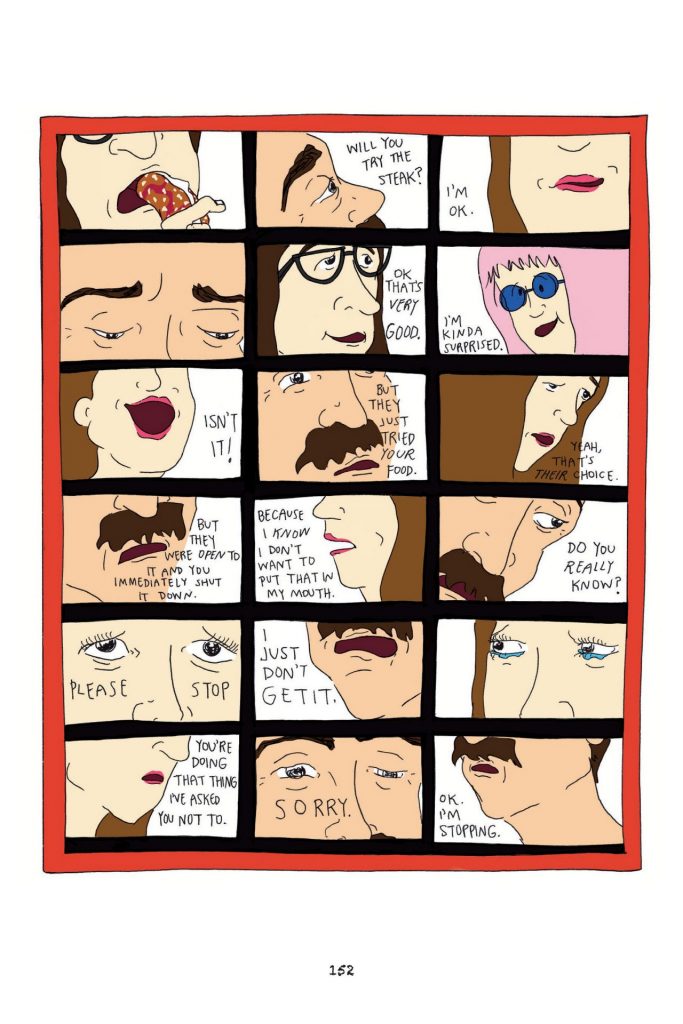
SW: And you knew the relationship component was going to be in it.
HFC: I knew that part. The book came out of a shorter comic I made for Electric Literature, which was about the dynamic between my ex and me. The premise of that one was: two extreme opposite people have fallen in love, and all this wacky shit is coming out on both sides. One is a major foodie/wine person, and one is me, being like, “I just want to eat twenty snacks a day, and they’re all very similar.”
But that comic was more about foodie culture. And the book didn’t end up being that.
SW: Yeah. A lot of what you write ends up being about your family.
HFC: I can’t help myself!
SW: On that note: tell me about the first recipe we’re going to eat.
HFC: OK. I guess I should have plates involved, right?
SW: Whatever. I’m here for the full Hilary Campbell experience.
HFC: All right. So, I didn’t eat anything when I was little. I was really afraid of food. Didn’t want to be told to eat anything ever. If you tell me to eat it, now I’m for sure not going to do that. And as the youngest of four, everyone starts teasing you because you’re picky. That’s just how the world functions.
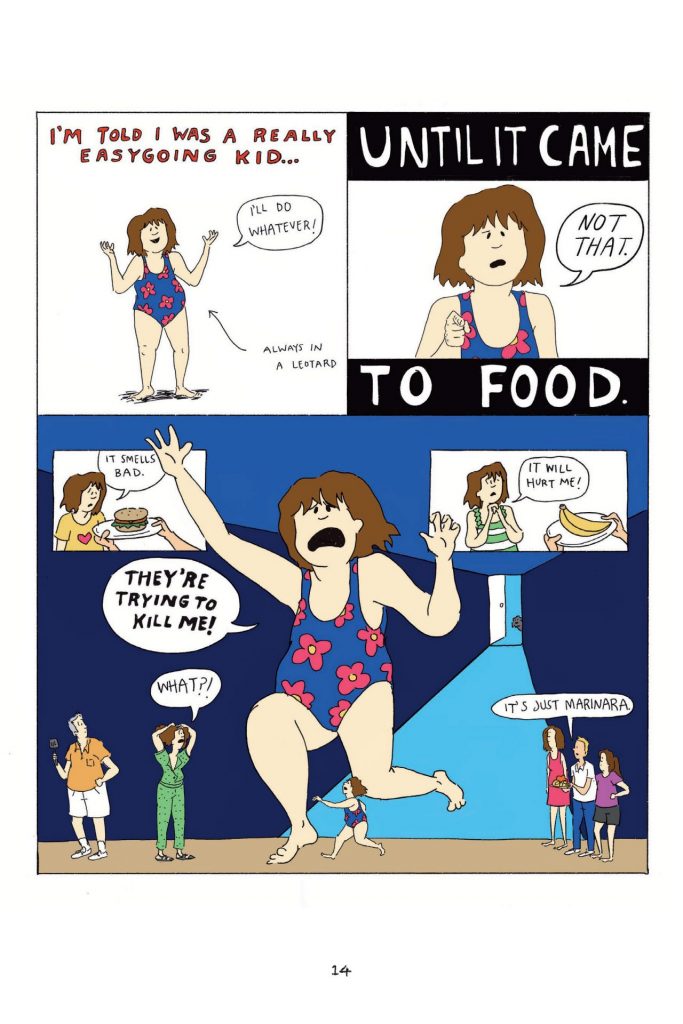
I especially had such a fear of new foods. There were safe foods that I knew, texture and everything, so it was OK. But if you altered anything, you put the fear of God in me. So, as my brother Danny used to say: “Hilary only eats white foods.” And my parents were extremely accommodating, because I would become so hysterical.
When I started to go to school and there had to be food to eat away from home, that was a whole other can of worms.
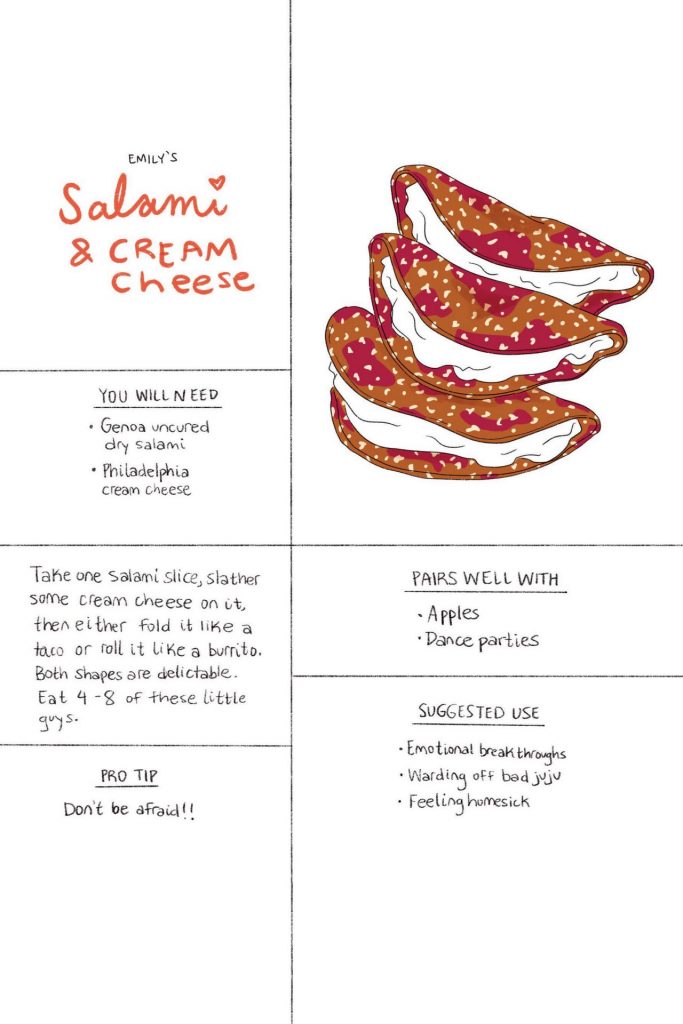
I remember my sister Emily made this one day. In my head, she invented it. Oddly enough – this makes no sense – I wouldn’t eat any other meat, but I would eat salami. And I knew about cream cheese.
SW: You knew about it!
HFC: It’s white. So. Here it is. It’s had different names over the years in our household. Salami and cream cheese, a classic. Someone started calling them salami and cream cheese roll-ups. But I just thought they were salami and cream cheese tacos. It’s cheese and meat, really. It’s salty.
SW: Really salty. First, I’m overwhelmed by salami, then in comes cream cheese, coating, even now, the back of my throat.
HFC: Yep. When I ate this the first time, my mom was like, “Holy shit!”
SW: I wonder if that’s part of why you like it, because everyone was proud of you.
HFC: Maybe. . . Anyway, cut to me at school. It’s a little hot. Sweaty, dripping cream cheese in a paper sack.
SW: Nice.
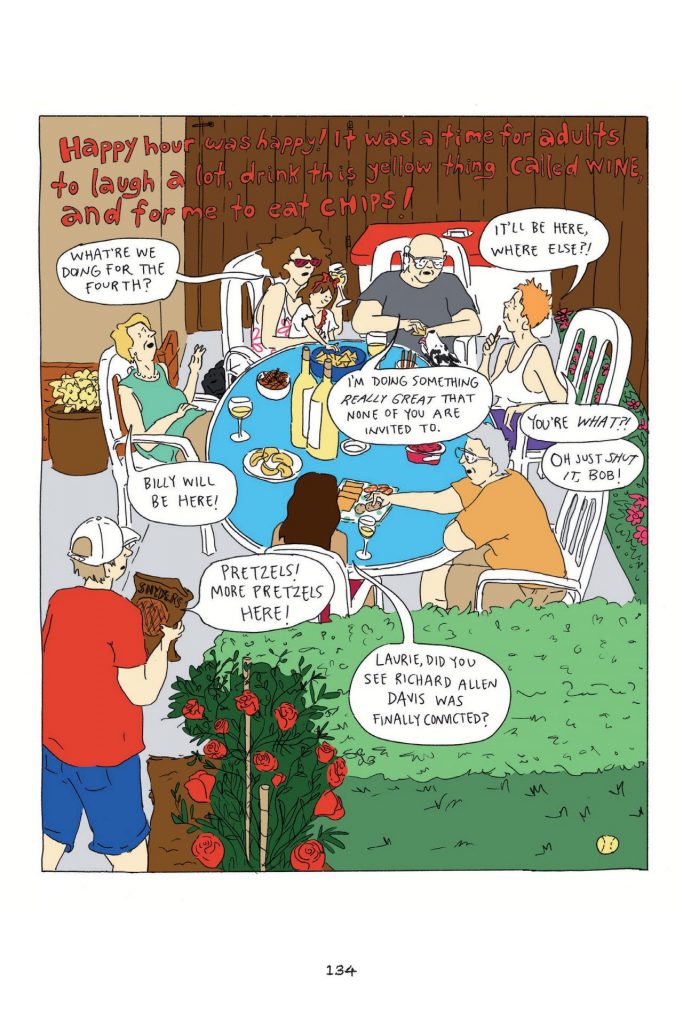
SW: We just did a recipe from early life. Which one should we do next?
HFC: We’ll do Diet Coke and pretzels. It would be Goldfish, but I forgot to get them.
OK. Let it be known that my mom has a huge Diet Coke addiction. Absolutely drank them while pregnant. So I came out, Diet Coke in hand, like, “When’s happy hour? See you there with some snacks.”
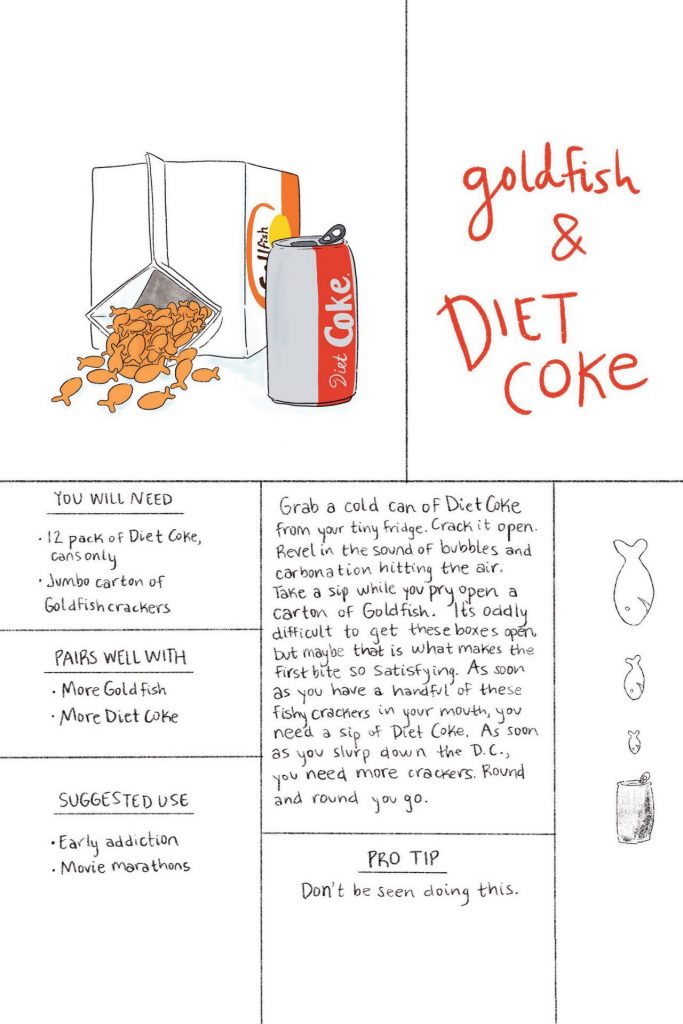
I always saw my aunts sitting at 3 pm in a conversation with each other, and there were pretzels in front of them, and they were having a Diet Coke. I wanted to be older, of course. And my mom and her sisters were always having the best time. Whenever they’re together, they’re, like, screaming-laughing. And everyone’s eating pretzels and drinking a Diet Coke. Of course, I wasn’t allowed to have it back then, but you sneak a sip. Eventually, I became a horrible Diet Coke addict until I completely kicked it at the end of college. A few years ago, I decided that every once in a while I can have one.
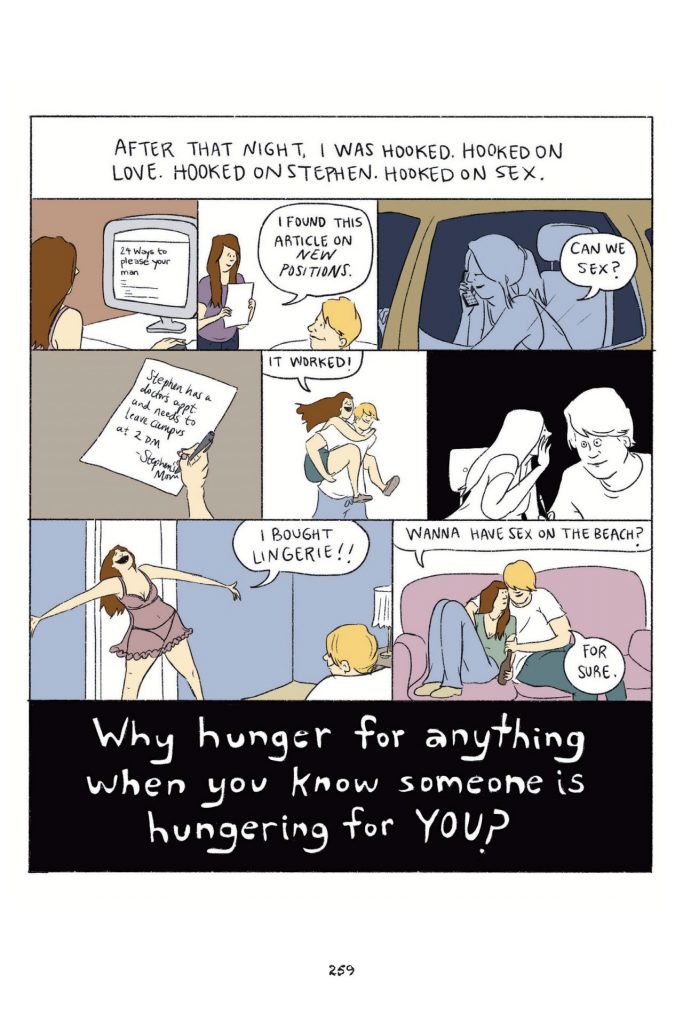
SW: So we’re getting into your teenage years. How was the process of writing that part of the book?
HFC: It was really hard. I had to do a lot of work to really stay solely focused on food, and omit all these other things: social hierarchy, loss of friendships, experimenting with alcohol, boys… it could have become the whole book.
SW: One of the tricky parts of this topic must be that nothing is ever that far from food. HFC: Right. I was trying to keep it with my body. Like, losing my virginity is in the book, and how I became obsessed with sex.
SW: What’s the connection?
HFC: It’s another way to nourish your body. It’s just as physical as eating.
SW: My understanding is: the relationship with food is always really fraught for you. You’re afraid of it, and then you have all these thoughts about your body and how you’re perceived. But it does seem like sex gets to just be this thing you want in a much more direct way. It doesn’t seem like there’s guilt or fear associated in the same way.
HFC: Yes. I was so obsessed with the concept of being wanted. And the other thing that starts happening is the comparing. I remember being in bikinis at summer pool parties, and certain girls, in my head, just looked so much better than me. I couldn’t stop thinking about it. I started calorie counting.
SW: I think this leads into the next phase of the book.
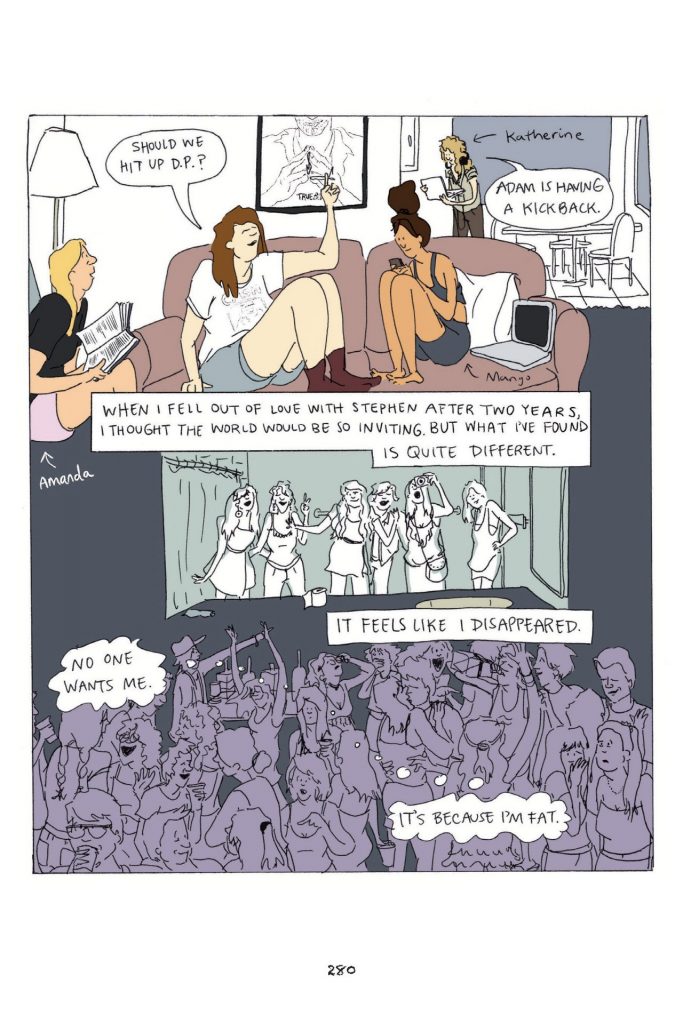
HFC: My out-of-control period. I went to college at UCSB, and I was really lonely. I would sit in the shower and sob my eyes out. I really hated myself. I was gaining so much weight. Eating in the dining commons, drinking heavily, being in charge of yourself for the first time. I felt horrible, and I projected that onto every aspect of my life. If I can get a guy to love me, I will feel better. Some guy, and there would be some relief. And when I couldn’t get it, I would just binge eat.
I would binge like crazy and then throw everything up. A very painful cycle that I never talked to anyone about. A lot of shame. Doubled on the shame I had about my body.
The hardest part of this process was reading my diaries from that time. I was avoiding it for a very long time. Back then, I was always writing. I was in school for screenwriting. It was the only thing that made me feel good. And I was getting awards, and professors were telling me I was one of their best students. So, amid all the physical self-hate, I was getting praise in school. I am talented. That was the one thing I could hold on to while hating myself.
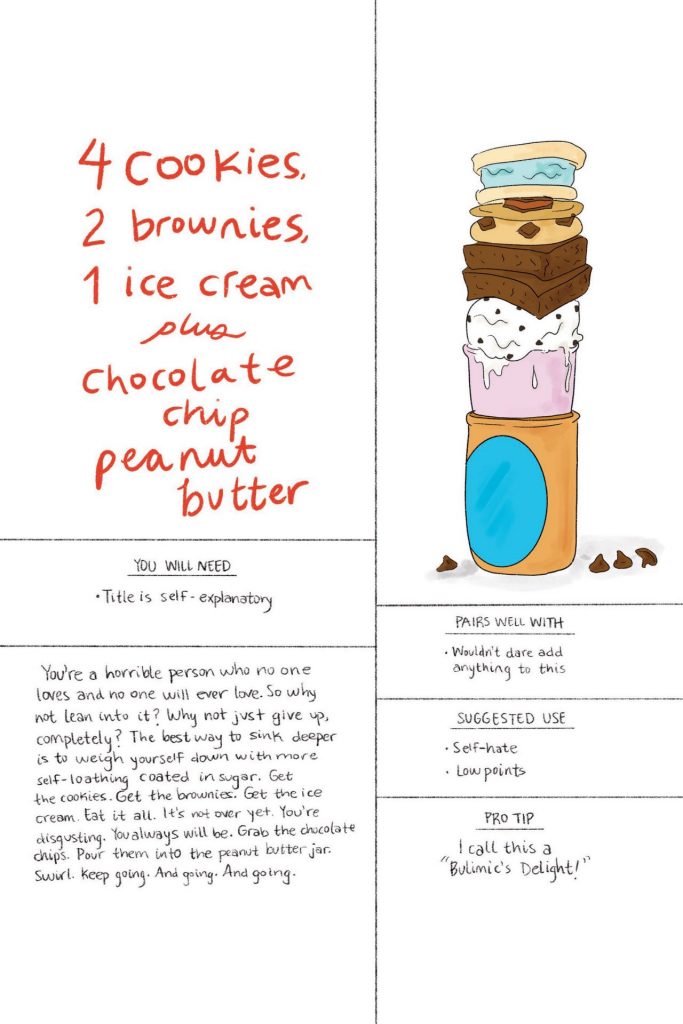
HFC: What we’re going to do is a very small portion of what’s in the book: chocolate chips and a spoonful of peanut butter. Think about doing this when you’re crying.
SW: Oh, I’ve done it. My style was more Nutella-and-cry, but same energy. Though, hm, this peanut butter: hard to eat!
HFC: Slows you down!
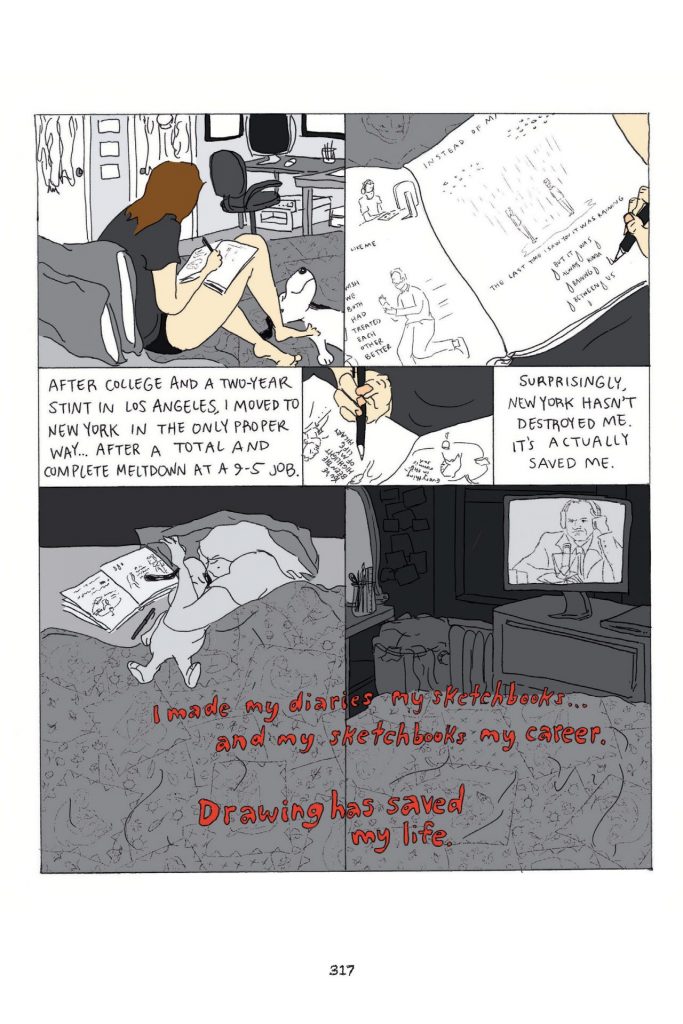
Across her body of work, one of Hilary’s great gifts to her readers is a feeling of easy intimacy. In life, she is an inveterate cartoon diarist, producing mountains of sketchbooks and often documenting the conversations and events of her life in near-real time. Though The Joy of Snacking shares with her diary comics this feeling of unadulterated closeness, it is a significantly more substantial project, a decades-spanning, 380-page personal history. I ask how she went about structuring it.
HFC: The first year and a half, I was basically just taking notes, going through a lot of diaries. And I had the box I keep with all my notecards of all my memories and feelings and textures. I was just trying to gather a lot of pieces. And then looking to see what’s actually relevant: I wanted to focus on the feeling and the fear. The evolution of that fear, because that turned into mistrust in myself. It took many paths.
With my last book, I really didn’t know what I was doing. This time, I think I learned a lot about story structure — like, just pulling back a lot. My first draft had all this overt narration, and then I remember talking to people who said, “You don’t need it.” And everything ran a lot cleaner, to just let the story happen without this God voice constantly.
And getting through the book was such an emotional hurdle. It was really painful and then it became beautiful. Like, if it were therapy, it was good for me.
SW: Let’s talk about where the book leaves off.
HFC: The book starts and ends with a burlesque show. That’s something I secretly wanted to do forever, but I never thought I would believe in myself in that capacity. And it’s not that I’m thin enough or anything like that: it’s that I like myself. I got to that place. I can’t believe I’ve gotten this far with how I feel about myself. So it felt like that celebration of my body, all bodies, was the perfect way to end the book.
SW: Did burlesque help you get there, or was it the product of feeling better?
HFC: It’s both. I never would have signed up for the class if I hadn’t grown so deeply in that way, to come out on the complete other side. And to get back to art: after college is when I started to write down my thoughts with doodles, and thought, “maybe I do this?” and that started to make me feel better.
SW: Doing it, and getting validated that way?
HFC: Yeah. Finding success. I can do this. Feeling that kind of confidence adds so much to your life. I moved to New York. I loved it here! I’m starting to find success! My obsession with food was starting to not be at the forefront of my mind.
SW: Where are you at with food these days?
HFC: Food is. . . literally fine. I never want to say the falsity that I’m fine. I have days where thoughts creep up. But I usually can have a conversation with them in my head: “Maybe you don’t feel good because you’ve just been sitting and drawing for two days.” SW: Is there joy in food at all?
HFC: Well, you know I love nachos. [laughs] I love chips and cheese! Melted cheese! There’s nothing like it! I regained the joy of snacking.
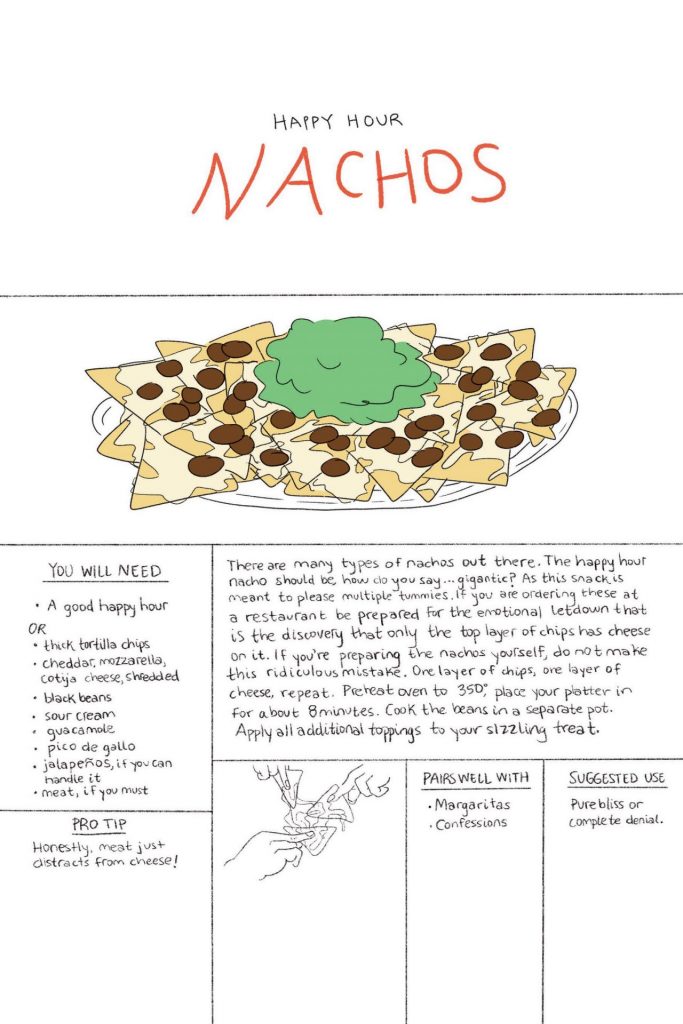
SW: Last thoughts, as you wait for your book to come out?
HFC: I’m nervous. And excited! I really can’t wait to see who hates me on Goodreads.
SOLRAD is made possible by the generous donations of readers like you. Support our Patreon campaign, or make a tax-deductible donation to our publisher, Fieldmouse Press, today.

Leave a Reply